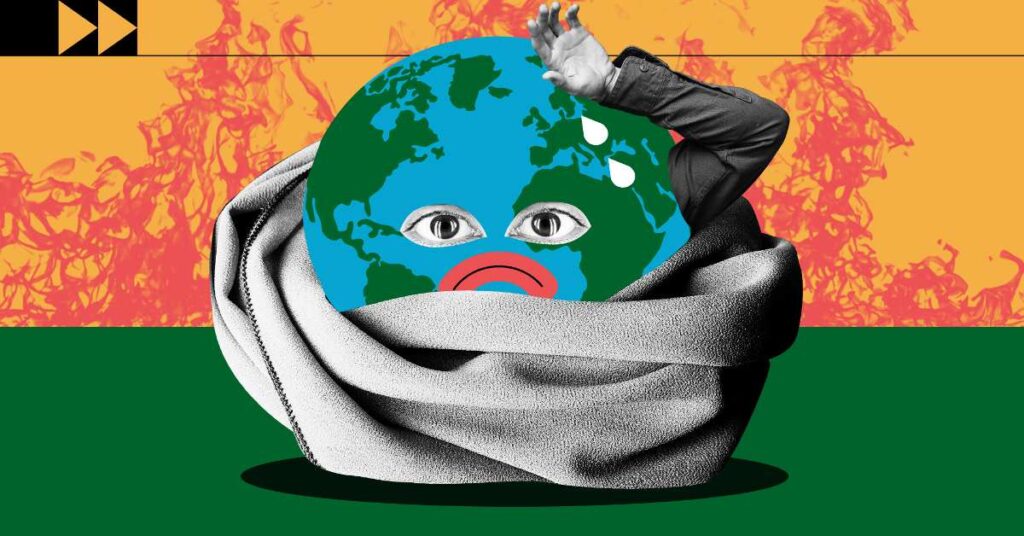Global warming
Global warming – After the Industrial Revolution, the globe’s annual temperature rose by just over one degree Celsius. But, between the 1880s and the 1980s, it increased by an average of 0.07 degrees every 10 years. The global annual temperature has increased by 0.18 degrees Celsius over the past 40 years.


Causes of global warming
- Global warming occurs because of the trapping of the long wave radiation bounced back to earth by gases such as carbon dioxide and other air pollutants. Normally this radiation would escape into space, but these greenhouse gases, which have the longest atmospheric lifetime, trap heat and warm the planet.
- Natural cycles have caused several changes in the Earth’s climate in recent years, but the current era of global warming is directly caused by human activity such as burning fossil fuels such as coal, petrol, diesel, and other crude oils.
- Since forests take in the carbon dioxide released by human emissions. Then it eliminates the limits of nature’s ability to keep them under control. They give out a vast amount of greenhouse gases such as carbon monoxide and nitrous oxide. Road vehicles are the major cause of greenhouse gases.
- Generating electricity and heat by burning fossil fuels causes a huge emission of global gases. Only a quarter of electricity is produced from renewable sources. Most electricity is generated by burning coal, which emits nitrous oxide and carbon dioxide.
Effects of global warming
- Warmer temperatures, stronger storms, and greater drought are the results of an increase in global temperature. Global warming can reduce food production for people.
- An increase in global temperature can result in the melting of ice caps and glaciers. The melting of ice caps can increase the sea level, affecting people’s livelihoods in coastal areas. Additionally, the ocean absorbs carbon dioxide, keeping it out of the atmosphere. A huge amount of carbon dioxide damages marine organisms and coral reefs.
- Climate change poses risks to the survival of species on land and the ocean. More than a billion species are threatened with extinction in the coming decades.
- Climate change is the biggest enemy of human beings. Climate change is increasing disease and extreme weather events are increasing the number of deaths, making it difficult for people to take care of their health.
- Increasing droughts cause a reduction in food production. Floods destroy slums and other low-lying areas, which affect livelihoods. The increase in global temperature makes people suffer while working outdoors. Water scarcity affects agricultural production and increases poverty among populations.
Conclusion of Global warming
Global warming skyrocketed more than any other climate change recorded by humans. Global cooperation among countries to address climate change is significant to lower the adverse impact. Not only that but also along with climate change-related adaptation can address the adverse effects we face right now. An international-level comprehensive plan of action is necessary for the inclusive and sustainable growth of the global community.
